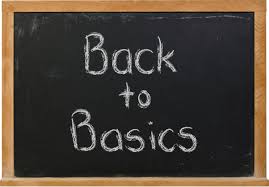This page gives you a clear and basic introduction to the Individual Oral. Later pages, provide you with tips, models, and activities to help you develop the understandings and skills to confidently deliver great oral presentations that help you succeed in this challenging task.
The Individual Oral - What is it?

At Standard Level (SL), the individual oral is, as the name suggests, an oral exam that is internally assessed by your teacher, and externally moderated by an IB examiner (normally a teacher in another IB school).
What is involved? You select two works (one literary, one non-literary body of work) studied during your course, and two text extracts from these. One of the texts or extracts must be non-literary. The other must be literary. You select a global issue, and you discuss how this global issue is represented in the content and form of your chosen texts.
When does it take place? Your teacher will tell you this, and your teacher will give you considerable advance notice of exactly where and when your individual oral will take place. Your oral is unlikely to take place earlier than the end of your first year of study. It may take place in your second year of study. Your teacher determines this.
How long do you have? You will be given time to prepare and practice for your individual oral. Your approach and choice of texts is your own, but you will be guided by your teacher. The actual exam involves a 10 minute prepared response (although this is not a written transcript of what you will say), followed by 5 minutes of questioning from your teacher. Your initial presentation of ideas is guided by the following prompt: Examine the ways in which the global issue of your choice is presented through the content and form of two of the works that you have studied.
What is it worth? Your individual oral is marked out of 40 marks. It makes up 30% of your overall assessment for the course.

At Higher Level (HL), the individual oral is, as the name suggests, an oral exam that is internally assessed by your teacher, and externally moderated by an IB examiner (normally a teacher in another IB school).
What is involved? You select two works (one literary, one non-literary body of work) studied during your course, and two text extracts from these. One of the texts or extracts must be non-literary. The other must be literary. You select a global issue, and you discuss how this global issue is represented in the content and form of your chosen texts.
When does it take place? Your teacher will tell you this, and your teacher will give you considerable advance notice of exactly where and when your individual oral will take place. Your oral is unlikely to take place earlier than the end of your first year of study. It may take place in your second year of study. Your teacher determines this.
How long do you have? You will be given time to prepare and practice for your individual oral. Your approach and choice of texts is your own, but you will be guided by your teacher. The actual exam involves a 10 minute prepared response (although this is not a written transcript of what you will say), followed by 5 minutes of questioning from your teacher. Your initial presentation of ideas is guided by the following prompt: Examine the ways in which the global issue of your choice is presented through the content and form of two of the works that you have studied.
What is it worth? Your individual oral is marked out of 40 marks. It makes up 20% of your overall assessment for the course.
What are the marking criteria for the Individual Oral?

Standard Level (SL)
A: Knowledge, understanding and interpretation - Do you show, in relation to the global issue you have chosen, an understanding of the extracts, and the works and texts from which the extracts were taken? Do you support your claims with appropriate references to the extracts? (10 marks)
B: Analysis and evaluation - Do you show an understanding of the choices made by writers, including aspects of language, technique, and style, to establish meaning in relation to the global issue you have chosen? (10 marks)
C: Focus and organisation - Do you present your ideas in a consistently focused and coherent way? Is your argument organized? (10 marks)
D: Language - Is your language clear, carefully chosen, and precise? Is your register (i.e. formality, style, word choice) appropriate, and do you use, for example, tone and rhetorical strategies to enhance your oral delivery? (10 marks)

Higher Level (HL)
A: Knowledge, understanding and interpretation - Do you show, in relation to the global issue you have chosen, an understanding of the extracts, and the works and texts from which the extracts were taken? Do you support your claims with appropriate references to the extracts? (10 marks)
B: Analysis and evaluation - Do you show an understanding of the choices made by writers, including aspects of language, technique, and style, to establish meaning in relation to the global issue you have chosen? (10 marks)
C: Focus and organisation - Do you present your ideas in a consistently focused and coherent way? Is your argument organized? (10 marks)
D: Language - Is your language clear, carefully chosen, and precise? Is your register (i.e. formality, style, word choice) appropriate, and do you use, for example, tone and rhetorical strategies to enhance your oral delivery? (10 marks)
How much of Individual Oral - The Basics have you understood?



 Twitter
Twitter  Facebook
Facebook  LinkedIn
LinkedIn